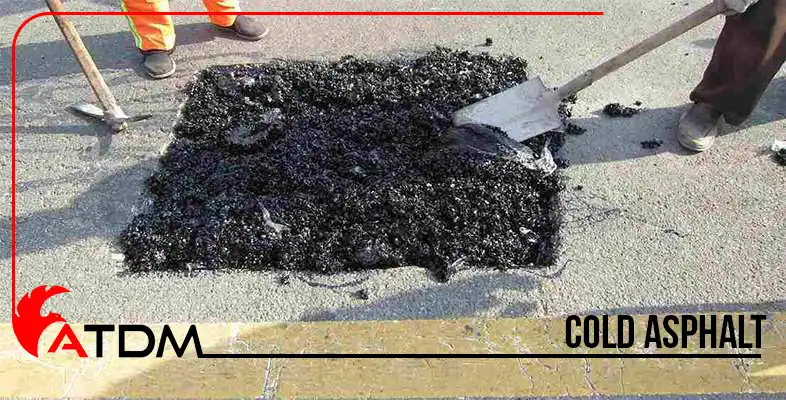
Cold asphalt, also known as cold mix asphalt, is a game-changing solution for road maintenance and emergency repairs. Unlike traditional hot mix, cold asphalt is ready to use, requires no heating, and can be applied in any weather condition. Whether you’re a contractor, municipality, or wholesaler looking for bulk materials, partnering with the right cold asphalt supplier ensures reliability, durability, and cost efficiency.
What Is Cold Asphalt?
Cold asphalt combines bitumen emulsion and aggregates to create a road repair solution that doesn’t require heating. Manufacturers produce it at ambient temperature, and it stays workable until you compact it, making it highly convenient for quick and efficient applications. This property makes it an excellent solution for instant pothole filling and temporary patching.
Applications of Cold Asphalt
Cold asphalt is widely used in:
Repairing potholes on city roads and highways
Patching utility cuts after pipe or cable installations
Maintenance of driveways and parking lots
Temporary road repairs in construction zones
Emergency road damage after floods or accidents
Its ease of use and quick-setting nature make it suitable for urban and rural environments alike.
Other Names and Commercial Terms
Cold asphalt is known by different commercial names depending on the supplier and market. Common alternatives include:
Cold Mix Asphalt
Instant Road Repair
Cold Patch Bitumen
Cold Premix Asphalt
Bitumen Cold Mix
Understanding these terms can help buyers communicate better with any cold asphalt supplier globally.
Cold Asphalt Grades
Different grades of cold asphalt serve different purposes. The most common ones include:
Standard Grade: Suitable for low-traffic areas
High-Performance Grade: Designed for highways and industrial areas
Polymer-Modified Cold Mix: Offers added flexibility and strength
Environmentally Friendly Grade: Made from recycled materials or bio-based emulsions
Your cold asphalt supplier can advise on the best grade depending on your project type.
Packaging Options Available
Cold asphalt comes in multiple packaging formats to suit different project needs:
25 kg and 50 kg plastic bags – Easy handling for retail or small repair teams
1-ton jumbo bags – Popular for large maintenance projects
Buckets or drums – Used for specialty patches or polymer-enhanced products
Bulk loading – For large infrastructure or municipal contracts
Always confirm with your cold asphalt supplier what packaging options are available for export or local delivery.
Shelf Life and Storage Recommendations
One of the main advantages of cold asphalt is its long shelf life:
Shelf life: Typically ranges from 6 to 12 months
Storage: Keep the product sealed in a dry, cool area, away from direct sunlight
Open bags should be used within a few days to ensure optimal performance
Proper storage ensures consistent results and minimizes waste.
Advantages of Cold Asphalt
There are numerous benefits to using cold asphalt over traditional hot mix:
No heating required
Quick and easy application
Environmentally friendly (lower emissions)
Ready for use even in rain or snow
Can be stored and used when needed
Cost-effective for small to mid-sized jobs
These advantages make cold asphalt a preferred solution for modern road maintenance teams.
How to Apply Cold Asphalt – Step-by-Step
Clean the pothole: Remove loose debris and water
Pour cold asphalt directly into the hole
Compact it using a tamper, hand tool, or roller
Reopen the road within 30 minutes to an hour
No heating or complex machinery is needed.
Cold Asphalt vs. Hot Mix Asphalt
| Feature | Cold Asphalt | Hot Mix Asphalt |
|---|---|---|
| Temperature | Ambient (no heating) | 150°C+ (hot applied) |
| Application | Simple, fast | Requires paving machines |
| Equipment Needed | Minimal | Advanced machinery |
| Shelf Life | Long | Very short |
| Ideal For | Emergency/small repairs | New roads and overlays |
Cold asphalt offers unmatched flexibility and responsiveness for repairs.
Technical Specifications
Typical technical parameters include:
Bitumen Content: 4% – 6%
Grain Size: 0-5 mm or 0-10 mm depending on usage
Density: Approx. 2.2 – 2.5 g/cm³
Curing Time: Traffic-ready within 1 hour
Color: Black (can vary slightly with additives)
Always request the MSDS and COA from your cold asphalt supplier for safety and compliance.
Export & Shipping Information
If you are planning to import or distribute cold asphalt, consider:
HS Code: 27150000 (Bituminous mixtures)
Minimum Order: Usually 20–24 MT for FCL
Origin: Common suppliers are based in UAE, Turkey, Iran, India, and China
Transport: Available via 20’ or 40’ containers or bulk truckload
Required Docs: Invoice, Packing List, MSDS, Certificate of Origin, COA, BL
A professional cold asphalt supplier will assist with all export documentation.
Cost Considerations
Prices of cold asphalt vary depending on:
Grade and formulation
Packaging size and type
Order volume (bulk discounts often available)
Destination and transport mode
Cold Asphalt for Emergency Repairs and Disaster Recovery
In natural disasters or accidents that damage roads, cold asphalt is a critical tool:
Quickly patch damaged roads
Maintain temporary access for emergency vehicles
Support infrastructure recovery teams
Provide quick solutions in isolated or war-torn regions
A dependable cold asphalt supplier with stock on hand can be a lifesaver during such times.
In Short
Cold asphalt is more than just a repair product—it is a strategic asset for road maintenance, disaster recovery, and public safety. Choosing the right cold asphalt supplier ensures quality, consistency, and reliability. Whether you’re managing small patchwork in a city or supplying infrastructure materials for a government project, cold asphalt offers the versatility and performance you need.
Cold asphalt is commonly used for quick road repairs, including pothole filling, utility cut patching, driveway maintenance, and emergency surface restoration. It can be applied without heating and sets quickly.
When applied correctly and compacted properly, cold asphalt can last from several months to a few years, depending on traffic volume and weather conditions.
Yes, cold asphalt is designed for use in all weather conditions, including cold or rainy environments, making it ideal for emergency or off-season repairs.